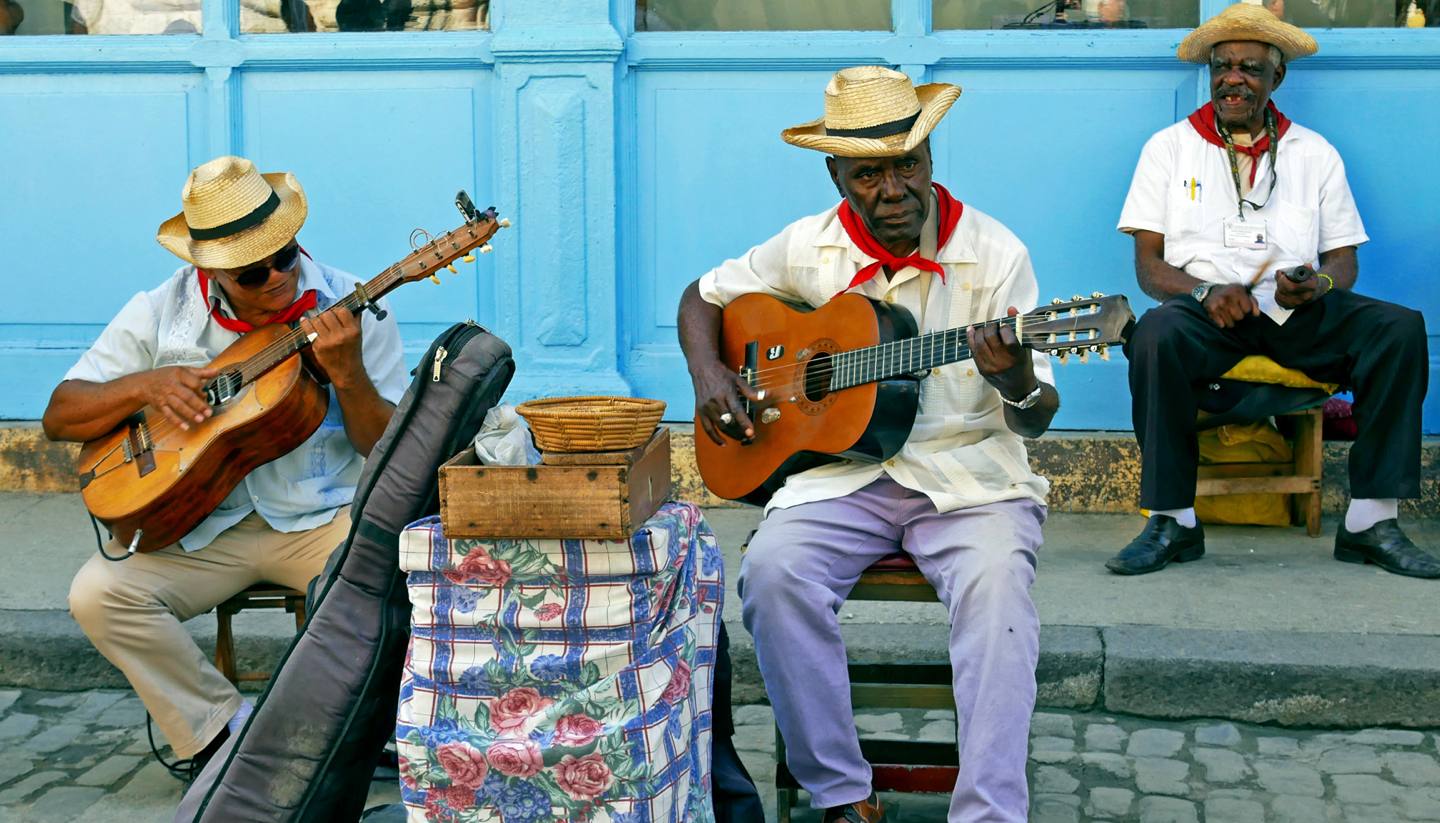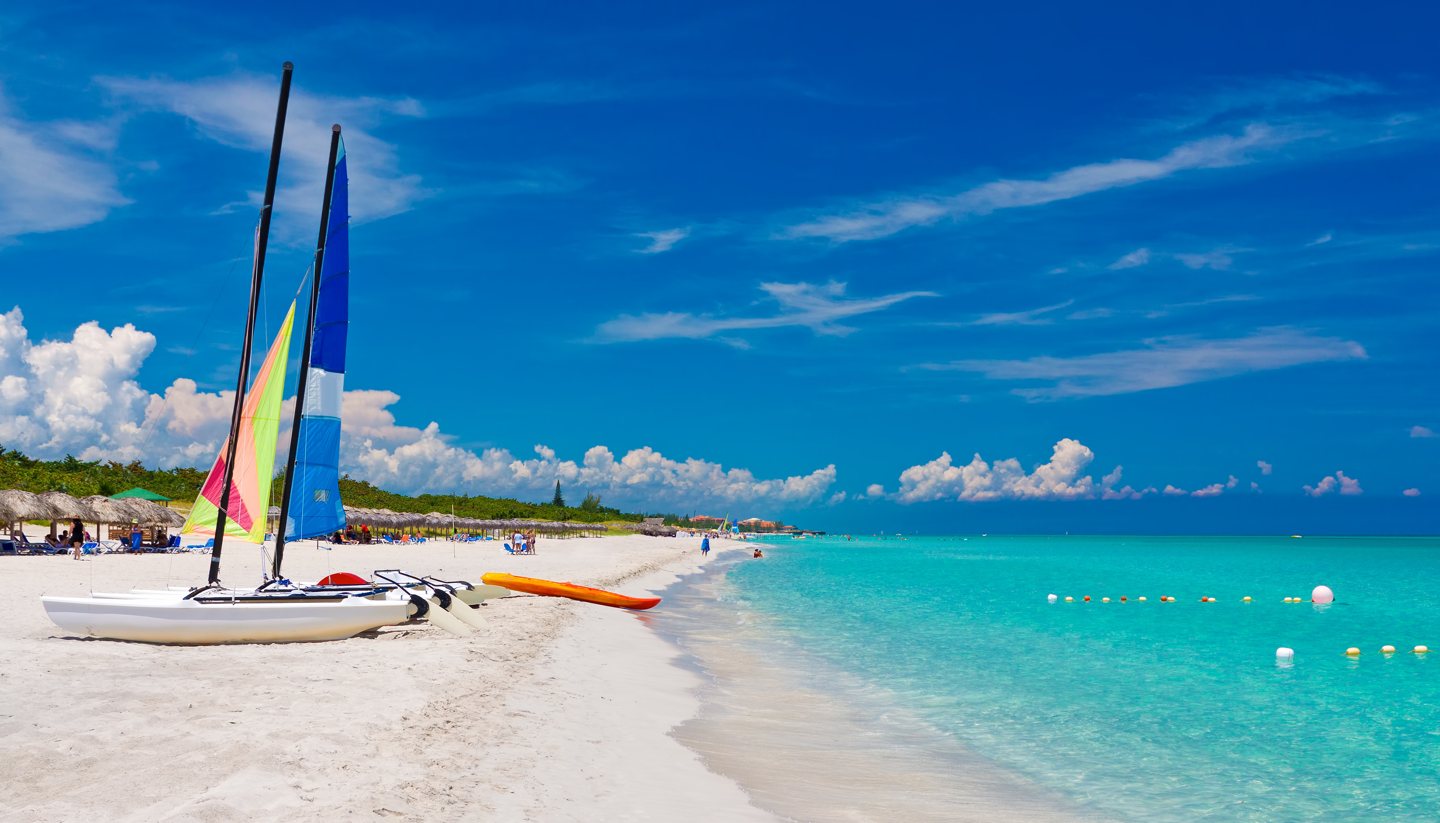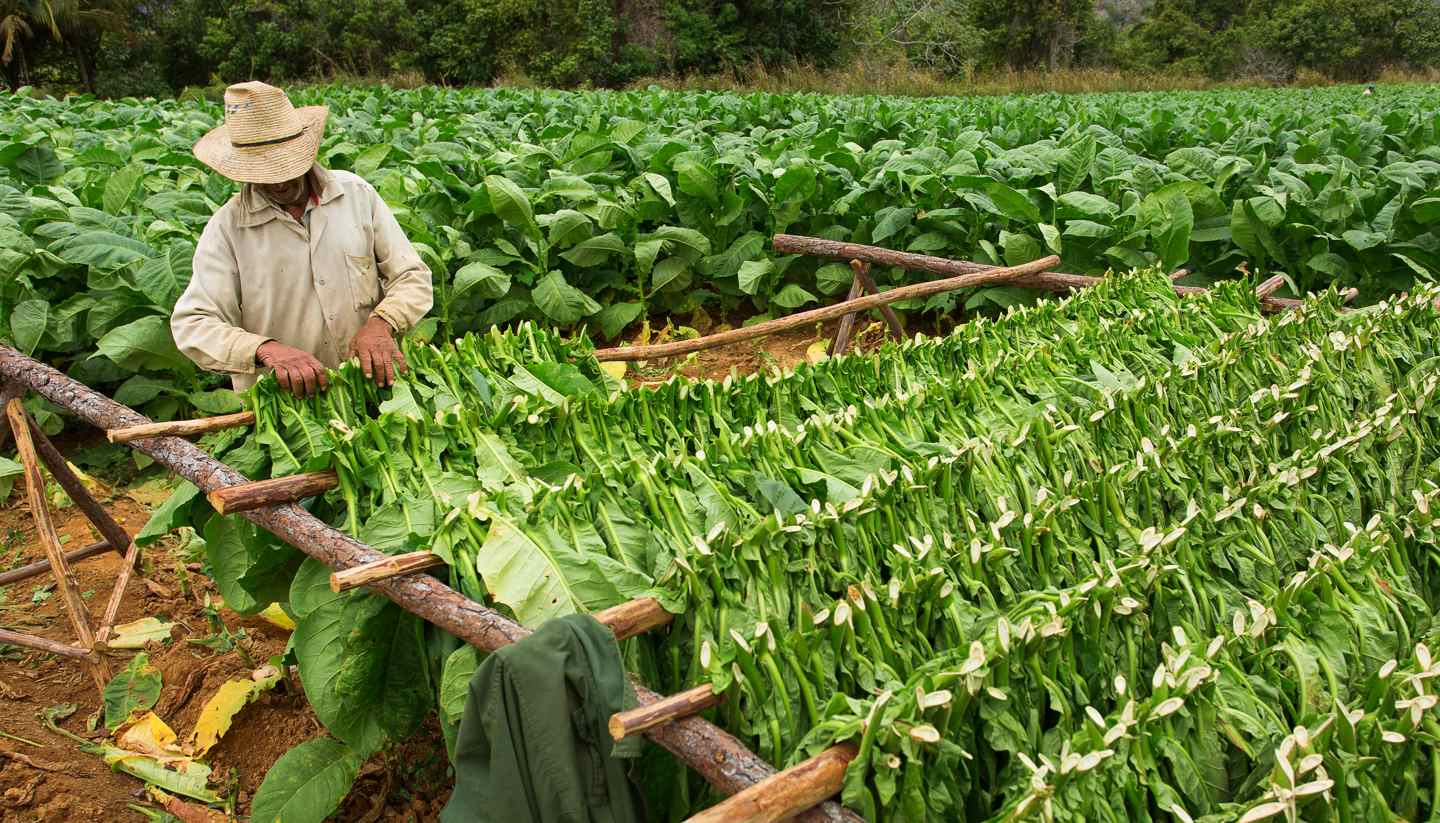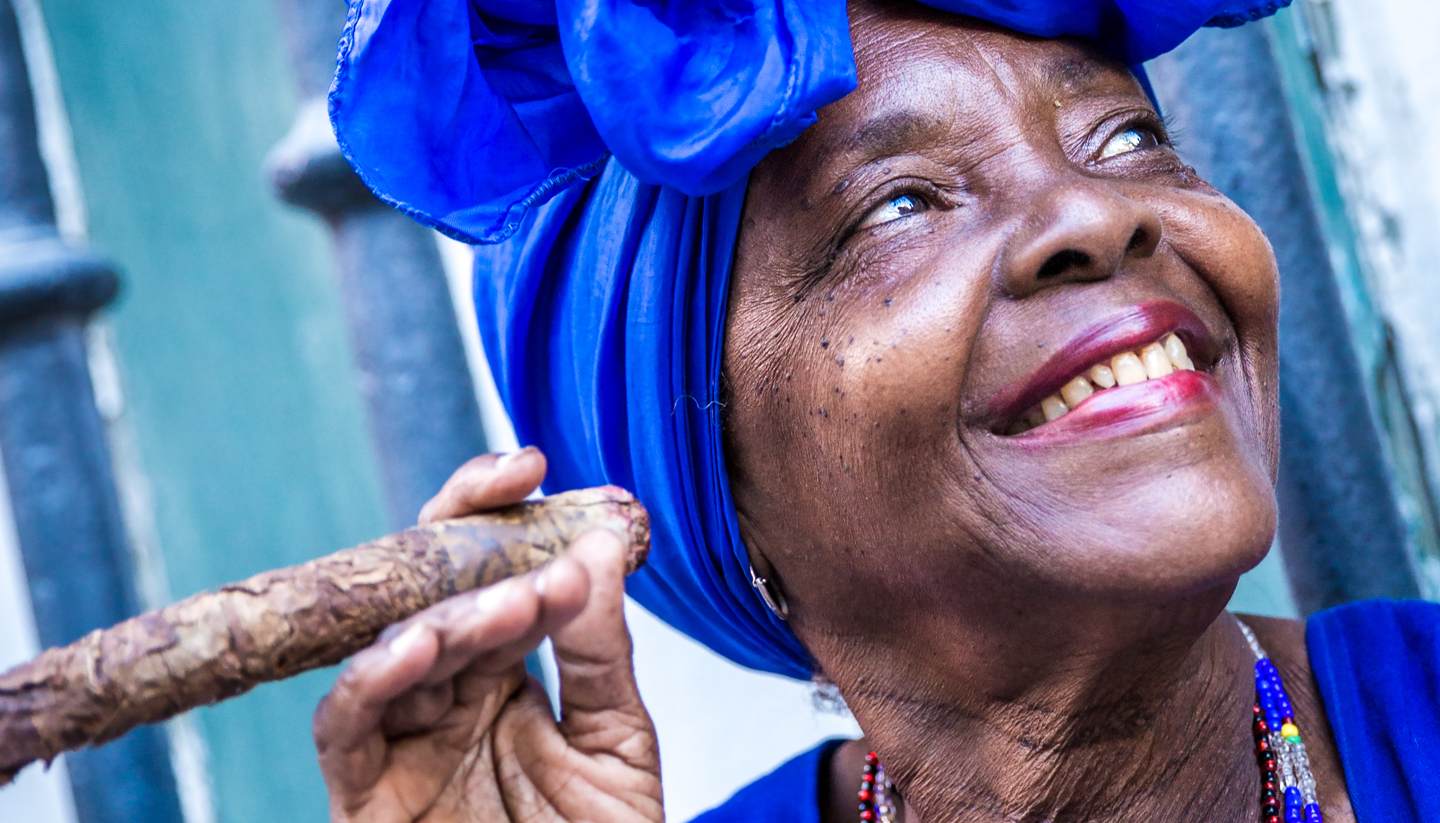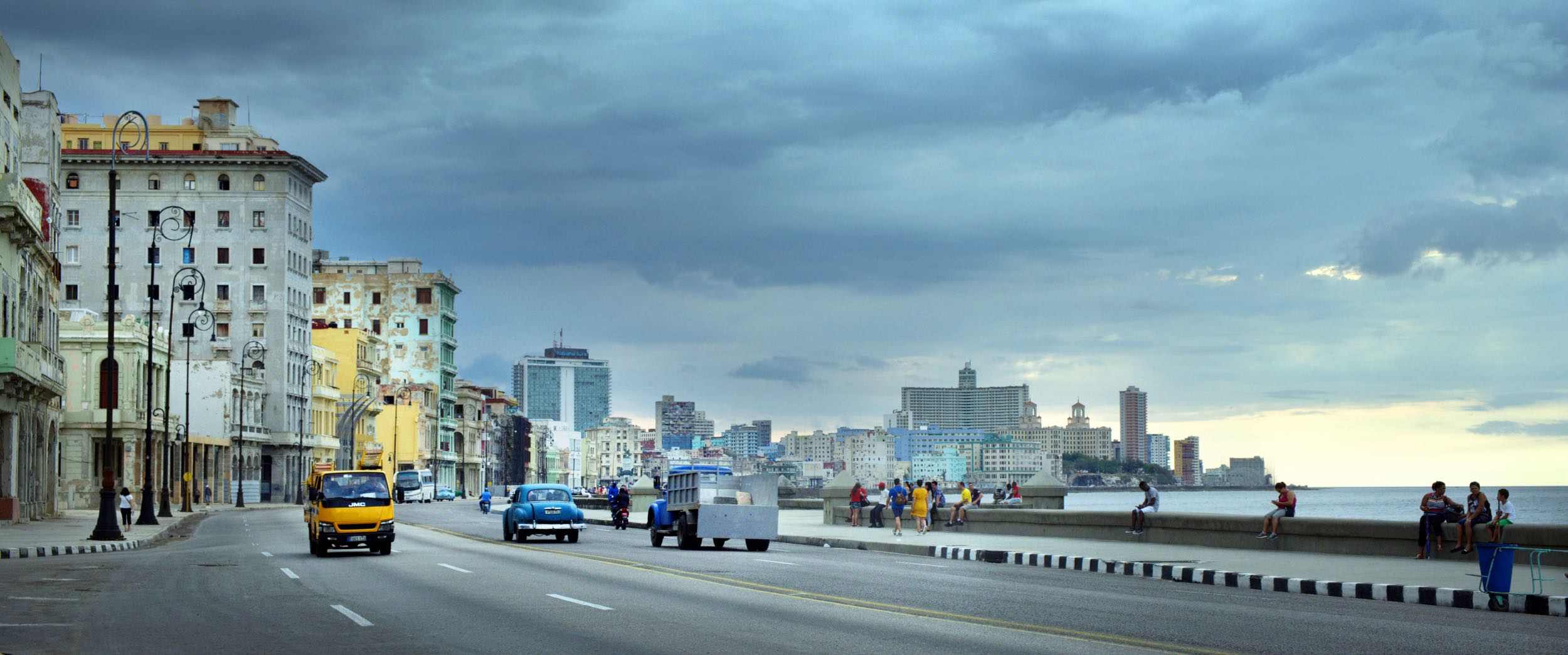Cuba travel guide
About Cuba
With pristine beaches, lush forests and vibrant cities all waiting to be explored, Cuba is more than a generic Caribbean island getaway.
Cuba's capital, Havana, appears to be in a constant state of restoration, rather similar to the varying conditions of classic cars that roam its streets. Visitors can expect a mishmash of beautifully restored colonial buildings rubbing shoulders with dilapidated tenements of regular Cubans. The contrasts can be stark, but Havana's ubiquitous salsa rhythms and potent cocktails galvanise the city and make for an enthralling urban experience unlike any other.
Cuba's other cities are experiences in themselves too. Santiago de Cuba is a veritable melting pot of Afro-Caribbean cultures, where pastel covered buildings meet grand cathedrals. And then there's Trinidad, which offers a snapshot of a bygone era with its cobblestone streets and faded colonial façades.
Although the cities are delightful, for many visitors the greatest allure of Cuba is its beaches. Christopher Columbus described the sandy coast of Guardalavaca as "the most beautiful land that human eyes have ever seen," and you can see why he was so taken – the impossibly white sands and warm turquoise waters are exquisite.
Adventurers may prefer to head inland to hike, bike and explore the limestone caves of Viñales. Viñales is said to have been Fidel Castro's favourite place in Cuba and it is where the country's famous tobacco is cultivated.
As Cuba slowly opens up to the rest of the world, modern resorts have become increasingly common, but the most rewarding stays are in casa particulares. These private homestays offer a true insight into everyday Cuban life, which you won't get in a hotel.
While Cuba is still not an easy country to get your head around, its affable climate, captivating history, beautiful beaches and swinging salsa rhythms certainly reward those who visit and give it the time it deserves.
Key facts
109,884 sq km (42,426 sq miles).
11,326,616 (UN estimate 2020).
106 per sq km.
Havana.
Socialist Republic.
President Miguel Díaz-Canel since 2018.
Manuel Marrero Cruz since 2019.
Travel Advice
Nationwide power outage
Cuba experienced a nationwide power outage on the evening of 14 March. Power was restored across the country on 16 March. Planned electricity outages continue across Cuba, including in Havana. In other areas of the country, power outages can be much longer.
You should take precautions such as conserving fuel and mobile phone charge, particularly if travelling outside Havana. The mobile phone network may be limited. Transport may be affected due to inability to refuel during power outages. Ensure you have enough fuel before setting off on your journey.
Before you travel
No travel can be guaranteed safe. Read all the advice in this guide. You may also find it helpful to:
- see general advice for women travellers
- read our guide on disability and travel abroad
- see general advice for LGBT+ travellers
- read about safety for solo and independent travel
- see advice on volunteering and adventure travel abroad
Travel insurance
If you choose to travel, research your destinations and get appropriate travel insurance. Insurance should cover your itinerary, planned activities and expenses in an emergency.
About FCDO travel advice
The Foreign, Commonwealth & Development Office (FCDO) provides advice about risks of travel to help you make informed decisions. Find out more about FCDO travel advice.
Get travel advice updates
Sign up to get email notifications when this travel advice is updated.
Follow FCDO:
This information is for people travelling on a full ‘British citizen’ passport from the UK. It is based on the UK government’s understanding of Cuba’s current rules for the most common types of travel.
The authorities in Cuba set and enforce entry rules. If you’re not sure how these requirements apply to you, contact the Cuban Embassy in the UK.
Passport validity requirements
To enter Cuba, your passport must have an ‘expiry date’ at least 6 months after the date you arrive and 3 months after your planned departure date.
Check with your travel provider that your passport and other travel documents meet requirements. Renew your passport if you need to.
You will be denied entry if you do not have a valid travel document or try to use a passport that has been reported lost or stolen.
Visa requirements
If you’re visiting Cuba as a tourist, you need to get a tourist card, also known as a tourist visa, before you travel. Apply through the Cuban Embassy in the UK or check with your travel agent or tour operator. Travellers can also access the link here to apply for their tourist cards/’visa’ online. The electronic card will be linked to the applicant’s passport.
You must also show proof of onward or return travel. See Cuba’s consular services information for details.
For more information and advice about other types of visas, contact the Cuban Embassy in the UK.
The Cuban Tourism Portal provides useful information on travelling to and within Cuba.
Overstaying your visa
The authorities take any breach of immigration rules seriously. You could be detained if you overstay your visa.
Checks at border control
You must complete an online arrival form on the D’Viajeros traveller information portal within 72 hours before entering the country. You’ll get a QR code by email. This must be to shown to the authorities on arrival as an electronic or printed version. Airlines will check completion of the form at check-in..
Travelling from the USA to Cuba
Under US law, you are not allowed to travel directly from the USA to Cuba for tourism.
There are 12 reasons or categories for which the USA authorities will approve direct travel from the USA to Cuba. For more information see the US State Department’s travel advice for Cuba.
Travelling from Cuba to the USA
You cannot travel from Cuba to the USA without a US visa.
Vaccine requirements
You must have a certificate to prove you’ve had a yellow fever vaccination if you’re coming from a country listed as a transmission risk.
For full details about medical entry requirements and recommended vaccinations, see TravelHealthPro’s Cuba guide.
Customs rules
There are strict rules about goods you can take into and out of Cuba. You must declare anything that may be prohibited or subject to tax or duty.
Art and antiques
Some art and antiques require an export permit from the Country Heritage Office (‘Bienes Culturales’). Ask the vendor if they have the required permit for the item you are buying. At the airport, you may need to show the receipt.
Photography equipment
You may need an import licence for photography equipment, as well as the appropriate journalism visa.
Drones
You are not allowed to bring drones into Cuba. They will be confiscated on arrival and not returned until your departure. The process for getting your drone back could be lengthy.
Food items
You cannot take meat products, milk, fresh fruit, vegetables, seeds or organic matter into Cuba, with some exceptions.
Electrical items and GPS on mobiles
Some electrical items with heavy power consumption may be confiscated on entry to Cuba.
Global Positioning Systems (GPS) are subject to import requirements. Mobile phones, tablets and laptops can be taken to Cuba, but you must turn off any inbuilt GPS.
Complete a customs form if items are confiscated on your arrival so you can collect them on your departure date.
Taking money into Cuba
The Cuban national peso (CUP – ‘moneda nacional’) is the official currency and cannot be exchanged outside of Cuba. Declare foreign currency you’re taking into Cuba if the value is more than 5,000 US dollars.
You must only exchange money at the Cadeca exchange houses. It is illegal to exchange money anywhere else. See Money.
Terrorism
There is a high threat of terrorist attack globally affecting UK interests and British nationals, including from groups and individuals who view the UK and British nationals as targets. Stay aware of your surroundings at all times.
UK Counter Terrorism Policing has information and advice on staying safe abroad and what to do in the event of a terrorist attack. Find out how to reduce your risk from terrorism while abroad.
Terrorism in Cuba
Although there’s no recent history of terrorism in Cuba, attacks cannot be ruled out.
Political situation
Cuba is ruled by a single party, with a high level of social control. Opposition parties are not allowed. There are restrictions on freedom of speech, association and assembly for Cuban nationals. Any political demonstrations not approved by the government may be broken up by the authorities.
Avoid any demonstrations or large gatherings and follow the advice of the local authorities. Internet access can sometime be blocked during times of political tension.
Crime
Levels of crime are generally lower than in the UK, but the difficult economic situation means opportunistic crime is increasing. Muggings are a risk, particularly at night.
Protecting your belongings
There is a risk of theft from luggage when baggage is being handled on arrival or departure at the airport. You should:
- not pack valuables in your hold luggage
- lock suitcases
- shrink-wrap luggage before check-in if possible
Be aware of pickpockets and bag-snatching:
- in the streets of Old Havana or any crowded areas
- on public transport
- in nightclubs
Do not carry large amounts of cash or wear expensive-looking jewellery. Mobiles and laptops are particularly attractive to thieves. Leave valuables in a hotel safe.
Beware of theft from your accommodation, particularly from private guest houses (‘casas particulares’).
Fake taxi drivers
There are a small number of criminals who pose as tour operators or taxi drivers. These fake drivers operate at the airport and around Old Havana. Only travel with your tour operator. If you need to use a taxi from the airport, make sure it’s a registered yellow taxi.
Vehicle crime
There are sometimes car-related crimes and muggings in Havana, and other tourist areas. Do not hail taxis or accept lifts from anyone you do not know. Take care when driving in central Havana, particularly at night. Keep doors locked and windows closed.
There have been attacks on foreigners in hire cars after deliberate puncturing of tyres. If you are in a remote area with a punctured tyre drive on to the nearest town before stopping. Do not pick up hitchhikers.
Laws and cultural differences
Illegal drugs penalties
Cuba has strict laws on the use, possession and trafficking of illegal drugs. Cuban courts can give severe penalties for drug-related offences. Pack all luggage yourself and do not carry items for anyone else.
Using cameras in restricted areas
Avoid all military zones and other restricted areas. Do not take photographs or videos in these areas. Possession of photographs or information relating to military areas or installations can be regarded as espionage and could result in a prison sentence.
LGBT+ travellers
Same-sex sexual activity is legal in Cuba, but gender diversity is not fully understood or accepted by the general population. Same-sex marriages are recognised under Cuban law.
Read more advice for LGBT+ travellers.
Risk of detention
If you break the law, or are suspected of causing injury to someone, you may be stopped from leaving Cuba during the investigation and trial, and you could be imprisoned. Contact the British Embassy in Havana as soon as possible for assistance.
Money
You must only exchange money at the Cadeca exchange houses. It is illegal to exchange money anywhere else, including with any individuals who may offer exchange services. If you’re caught making an unauthorised exchange, you could be fined or get a prison sentence.
Check with your bank before you travel that your debit, credit and ATM cards will work in Cuba. There are often severe shortages of Cuban national pesos available through ATMs, so it’s a good idea to bring cash in euros or US dollars. Expect long queues.
Following a banking reform, the government is encouraging businesses and consumers to use electronic payments rather than cash. State-run hotels and shops only accept bank card payments, but privately run hostels (‘casas particulares’), restaurants and shops may ask for cash payment in local or foreign currency.
Transport risks
Road travel
If you’re planning to drive, see information on driving abroad.
You can drive in Cuba with a UK driving licence for up to 6 months. After 6 months, you must pass a driving test and get a Cuban driving licence.
You can hire a car in Cuba, but fuel shortages can make it difficult to get petrol or diesel, especially for long distances. If you hire a car with a driver, they will know where to source fuel.
Motorcycles and scooters
If you hire a moped or motorbike, check the condition of the vehicle carefully. All drivers and passengers must wear a crash helmet.
Taxis
Three-wheel Coco-taxis may be in an unsafe condition. Tourists have been injured and killed when riding in these vehicles.
Official yellow taxis are generally reliable. Avoid private taxis and old private classic taxi cars as it is unlikely that they will be properly licensed, or have modern safety features. It is best to book rides in old classic cars from reputable companies.
Road conditions
Driving standards are variable. Many vehicles, including public transport, are badly maintained. Drivers are prone to stop suddenly and may not signal. Roads are poorly lit and badly sign-posted. Avoid driving at night as animals and unlit vehicles are a danger and you may not see hazards such as potholes.
Extreme weather and natural disasters
Find out what you can do to prepare for and respond to extreme weather and natural hazards.
Hurricanes
The hurricane season in Cuba is from June to November each year. Heavy rains often cause flash floods and landslides. After a hurricane, power, communications and water supplies can be disrupted. In extreme weather conditions, flights to and from Cuba may be delayed or cancelled.
Earthquakes
Cuba is in an active earthquake zone, but strong earthquakes are not common. The US Federal Emergency Management Agency website has advice about what to do before, during and after an earthquake.
Before you travel check that:
- your destination can provide the healthcare you may need
- you have appropriate travel insurance for local treatment or unexpected medical evacuation
This is particularly important if you have a health condition or are pregnant.
Emergency medical number
Call 104 and ask for an ambulance.
Contact your insurance company quickly if you’re referred to a medical facility for treatment.
Vaccine recommendations and health risks
At least 8 weeks before your trip:
-
check the latest vaccine recommendations for Cuba
-
see where to get vaccines and whether you have to pay on the NHS travel vaccinations page
See what health risks you’ll face in Cuba, including:
- dengue
- Zika virus
- malaria
- Oropouche virus disease
To control the spread of mosquito-borne diseases, the Cuban authorities may carry out chemical fumigation measures across the island. The chemicals used may cause some discomfort if you come into contact with them.
Medication
There are severe shortages of basic medicines, but clinics treating foreigners are more likely to stock basic medical supplies. Many medicines, pharmacy items and sanitary products that are easily accessible in the UK, are not available in Cuba.
If you have a pre-existing medical condition, do not expect to buy medication in Cuba. A letter from your GP stating treatment and dosage may be helpful if you need treatment from a medical practitioner.
The legal status and regulation of some medicines prescribed or bought in the UK can be different in other countries. Read best practice when travelling with medicines on TravelHealthPro.
Healthcare in Cuba
Medical facilities in Havana are better than elsewhere in Cuba. If you need medical treatment, you or your insurance company will need to pay by card with foreign currency before any treatment. Make sure you have accessible funds to cover the cost of any medical treatment abroad and repatriation.
FCDO has a list of medical providers in Cuba where some staff will speak English.
Travel and mental health
Psychiatric care facilities for foreigners are limited and difficult to access.
FCDO guidance on travel and mental health. There is also mental health guidance on TravelHealthPro.
The Foreign, Commonwealth & Development Office (FCDO) cannot provide tailored advice for individual trips. Read this travel advice and carry out your own research before deciding whether to travel.
Emergency services in Cuba
Ambulance: 104
Fire: 105
Police: 106
Contact your travel provider and insurer
Contact your travel provider and your insurer if you are involved in a serious incident or emergency abroad. They will tell you if they can help and what you need to do.
Refunds and changes to travel
For refunds or changes to travel, contact your travel provider. You may also be able to make a claim through insurance. However, insurers usually require you to talk to your travel provider first.
Find out more about changing or cancelling travel plans, including:
- where to get advice if you are in a dispute with a provider
- how to access previous versions of travel advice to support a claim
Support from FCDO
FCDO has guidance on staying safe and what to do if you need help or support abroad, including:
- finding English-speaking lawyers, funeral directors and translators and interpreters in Cuba
- dealing with a death in Cuba
- being arrested or imprisoned in Cuba
- getting help if you’re a victim of crime
- what to do if you’re in hospital
- if you’re affected by a crisis, such as a terrorist attack
Contacting FCDO
Help abroad
See how to get help from the UK government abroad including in an emergency.
Help in the UK
You can call FCDO in London if you need urgent help because something has happened to a friend or relative abroad.
Telephone: 020 7008 5000 (24 hours)
Get travel advice updates
Sign up to get email notifications when this travel advice is updated.
Follow FCDO:
Risk information for British companies
The Overseas Business Risk service offers information and advice for British companies operating in Cuba on how to manage political, economic, and business security-related risks.
